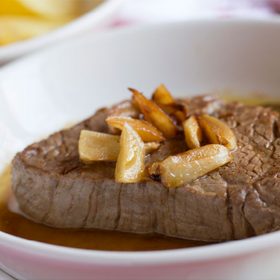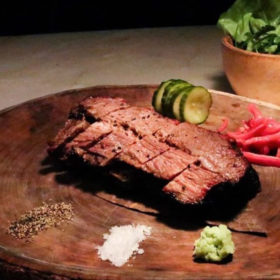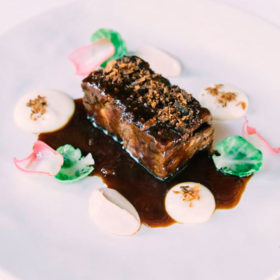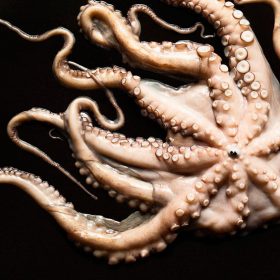In November 1940, two passengers boarded a train in Toulouse headed for Madrid, then onward to Lisbon. One was a striking Black woman in expensive furs; the other purportedly her secretary, a blonde Frenchman with moustache and thick glasses.
Josephine Baker, toast of Paris, the world’s first Black female superstar, one of its most photographed women and Europe’s highest-paid entertainer, was travelling, openly and in her habitual style, as herself – but she was playing a brand new role.
Her supposed assistant was Jacques Abtey, a French intelligence officer developing an underground counter-intelligence network to gather strategic information and funnel it to Charles de Gaulle’s London HQ, where the pair hoped to travel after Portugal.
Ostensibly, they were on their way to scout venues for Baker’s planned tour of the Iberian peninsula. In reality, they carried secret details of German troops in western France, including photos of landing craft the Nazis were lining up to invade Britain.
The information was mostly written on the singer’s musical scores in invisible ink, to be revealed with lemon juice. The photographs she had hidden in her underwear. The whole package was handed to British agents at the Lisbon embassy – who informed Abtey and Baker they would be far more valuable assets in France than in London.
So back to occupied France Baker duly went. “She was immensely brave, and utterly committed,” Hanna Diamond, a Cardiff university professor, said of Baker, who on Tuesday will become the first Black woman to enter the Panthéon in Paris, the mausoleum for France’s “great men”.
“There’s a lot we don’t know, and may never know, about exactly what espionage work she did, the secrets she actually transmitted,” said Diamond, an expert on second world war France who is researching a book about Baker’s wartime exploits.
“Bits of her life we know a great deal about: the humble beginnings in Missouri, the international sensation of 20s and 30s Paris, the US civil rights activist, the mother of an adopted, multiracial family … That’s not the case for the resistance heroine.”
President Emmanuel Macron decided this summer that 46 years after her death, Baker would become only the sixth woman to be memorialised in the Panthéon in a ceremony on 30 November – the anniversary of the marriage to Jean Lion that allowed her to acquire French nationality.
Born Freda Josephine McDonald in St Louis in 1906, Baker left school at 12 and landed a place in one of the first all-Black musicals on Broadway in 1921. Like many Black American artists at the time, she moved to France to escape discrimination.
Emerging from the chorus line of La Revue Nègre, she became a huge star, tapping into colonialist, racist and male sexist fantasies in performances that both shocked and delighted audiences and won admirers from Ernest Hemingway to Pablo Picasso.
Dubbed “the Black Venus”, she danced the charleston in nothing but a string of pearls and a skirt made of 16 rubber bananas, performed with a snake wrapped suggestively round her neck, strolled down the Champs-Élysées with her pet cheetah, and became an international superstar.
Off stage, as the hit songs and starring movie roles succeeded one another, Baker cultivated a scandalous private life, having affairs with men and women including the novelist Colette, the architect Le Corbusier and the crown prince of Sweden.
After the war she fought for equal rights as energetically in public as at home, speaking before Martin Luther King at the 1963 March on Washington and adopting 12 children from around the world to live with her in her chateau in the Dordogne.































